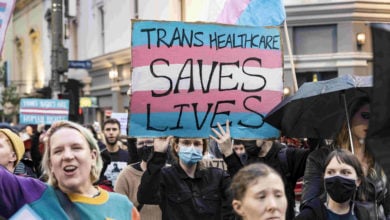In his 1884 landmark study, “The Origin of the Family, Private Property and the State,” Frederick Engels traced the development of human society in relation to the historic development of the means of production, paying close attention to the family and the role of women. He showed that what the capitalist and feudal ruling classes considered “human nature”—families and societies dominated by men, as well as rigid patriarchal sexual and gender relations—had nothing to do with nature at all.
In fact, completely different gender and family relations defined the majority of human history. The patriarchal concept of “normal” gender and family relations only developed over a precise historical period with the rise of class society. Since that time, scores of anthropologists like Evelyn Reed, Karen Sacks and Eleanor Burke Leacock have confirmed and expanded on Engel’s thesis.
For more than 90 percent of human history, society was not divided into social classes. Societies developed around a mode of production based on hunting and gathering. The technology and methods at the time did not allow for much surplus, if any, beyond daily subsistence. Since there was only enough for basic survival, no material basis existed yet for class division—for one sector of society to seize the goods, land or common property and put it under their private control.
This pre-class period is known as matrilineal society not because it was a hierarchical division but because the lineage of newborns was traced through the mother. Cooperation between the sexes was imperative for survival in a hostile environment; the administration, decision-making, labor, childrearing, etc. of the community was shared.
The eventual patriarchal elimination of this form of society was directly related to changes in production (such as improved agricultural techniques), which generated a surplus, and allowed for the subsequent accumulation of wealth. For a variety of reasons, over centuries of both incremental and sharp struggles, men came to dominate this new world of private property.
With this accumulation of wealth, property-owning men required a new set family structure to produce, hold and pass-down wealth. It became necessary for the father to trace and guarantee his lineage, which could only be accomplished by greatly restricting the sexual behavior of women in particular. This, in turn, led to the treatment of women, both socially and legally, as property. Patriarchy replaced communal society.
Patriarchal domination of both the wealth and the organization by which that wealth was controlled (i.e., the state) produced new modes of exploitation and inequality. This historic change created an order that degraded, subjugated and enslaved women.
The family, once a communal connection of men and women living and working in proximity to each other, became a monogamous unit of a man and a woman. Where the care of children and elderly was once communally organized, the male partner instead began to dominate and rule—the children and his spouse became his property. The needs of the emergent state ordered, controlled and degraded sexuality itself.
Homosexual and transgender people—seen as perfectly natural in previous matrilineal society— became a threat to the new male-dominated order. The patriarchal system established restrictive social and behavioral norms, which required sexual partnering with the opposite sex. This norm served to produce male heirs, while at once providing new toilers who would generate the wealth for the emerging ruling class. Those who defied the new rigid rules of conformity, through homosexual behavior or transgender identification, were labeled as heathens and witches. Persecuted and killed over centuries of time, only those who could hide their behavior or “pass” as one gender or another would survive.
LGBT oppression is directly linked to the economic system upon which society sits—from early agricultural societies to capitalism, systems based on class division inevitably create these types of special oppressions. Only the erosion of the material basis for inequality through socialist construction can true liberation be realized.





